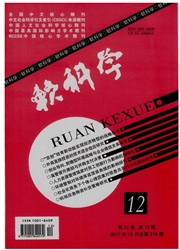

 中文摘要:
中文摘要:
对消费者偏好进行了细分并引入社会责任动力因子,建立了基于消费者偏好的供应链社会责任模型。运用博弈论的基本思想,分析了供应链履行社会责任的内在动力和政府激励方式。结果表明:履行社会责任较好和较差的供应链为了最大化自己的利润,前者对产品的最佳定价高于后者;当社会责任履行较好供应链的动力因子增加到一定程度后,获得高于社会责任履行较差供应链的利润的难度增加,且获得同样利润差额所需要付出的努力程度高于之前;当供应链的社会责任动力因子、成本增长系数以及可信度价值系数满足一定限制条件时,供应链不仅有足够的动力履行社会责任,而且愿意不断提高社会责任履行程度。
 英文摘要:
英文摘要:
This paper establishes a model of supply chain social responsibility based on consumer preferences, by subdivi- ding consumer preferences into two parts and introducing social responsibility motivation factor. Using the basic thought of game theory, it studies internal motivations of fulfilling supply chain social responsibility and government's motivational pat- tern. Results are displayed as follows : ( 1 ) for attaining maximum profit, supp!y chain which fulfills social responsibility bet- ter(SCB) will make a higher price to its products than those made by the supply chain which fulfills social responsibility worse(SCW) ; (2)when the social responsibility motivation factor of SCB increases to a certain extent, it is more difficult to gain more profits than SCW, in addition, SCB need to make more efforts to assure the same profit gap than before ; (3) supply chain can not only fulfill social responsibility, but also improve social responsibility motivation factor, when the social responsibility motivation factor, cost growth coefficient and reliability coefficient meet certain constraints.
 同期刊论文项目
同期刊论文项目
 同项目期刊论文
同项目期刊论文
 A Method for Aggregating Group Preference Based on Pair-wise Comparison with Random Binary Relations
A Method for Aggregating Group Preference Based on Pair-wise Comparison with Random Binary Relations 期刊信息
期刊信息
